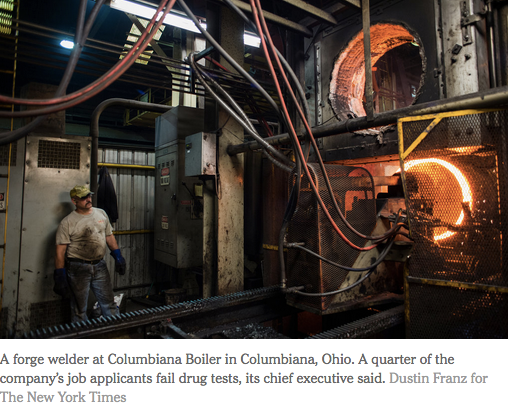The economic impact of drug use on the work force is being felt across the country, and perhaps nowhere more than in this region, which is struggling to overcome decades of deindustrialization.
Indeed, the opioid epidemic and, to some extent, wider marijuana use are hitting businesses and the economy in ways that are beginning to be acknowledged by policy makers and other experts.
A federal study estimated that prescription opioid abuse cost the economy $78.5 billion in 2013, but that does not capture the broader effect on businesses from factors like lost productivity, according to Curtis S. Florence, who led the research for the National Center for Injury Prevention and Control.
“That’s definitely a conservative estimate,” Mr. Florence said. “It’s very hard to measure how it affects employers, but if we could, it would be in addition to what we see here.”
The effect is seen not just in the applicants eliminated based on drug screening, but in those deterred from even applying. In congressional testimony this month, the Federal Reserve chairwoman, Janet L. Yellen, linked increased opioid abuse to declining participation in the labor force among prime-age workers.




